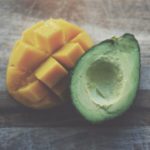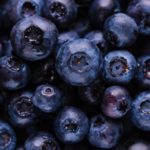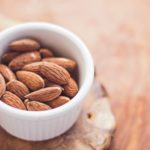Items to Help Your Brain’s Functions
With his knowledge, Dr. Etame shares some items we can focus on. Did you know? Compounds of chemicals have an important role to help fix your brain’s functions. Most supplements are a mixture of different vitamins that ultimately help your memory and other brain functions. Usually, natural vitamins are more successful than anything functionally manufactured. We know that certain foods and recipes can also support your vitamin and protein intake which help your body to run properly.
Let’s start with vitamins!
Below please find some of our specific vitamins and supplement findings (from A to Z):
- Acetyl-L-Carnitine (ALC) – ALC is produced normally in your brain and liver. This is a vitamin that is known to support your mental health, like depression and dementia. It is also known to assist memory in your brain. (Read mentions on the University of Michigan site and in Psychology Today.)
- B Vitamins – US National Library of Medicine has a great piece, “B Vitamins and the Brain: Mechanisms, Dose, and Efficacy,” detailing research on the B Vitamins and how they can help our brain. Our body cannot specifically create these vitamins, so it is important to add them to your diet through foods or as a part of your vitamin pill intake.
- B1 (Thiamine) – This is essential to support certain brain functions. Thiamine can create a pathway step for your brain. It also contributes to the function and the build of membrane cells, like neurons and neuroglia.
- B2 (Riboflavin) – Riboflavin helps two important coenzymes (FMN and FAD) to come into your body. These are helpers with your metabolism by focusing on essential fatty acids in brain lipids, through absorbing and using iron, and by regulating your thyroid hormones. If you did not have any help for these brain processes by riboflavin, your deficiency would be linked to a slower brain function. Another plus – Riboflavin also has some direct antioxidants for you.
- B3 (Niacin) – Your brain is actually very dependant on Niacin! Many of the ways your brain works along with its enzymes are dependant on Niacin. This includes the peripheral area of your brain cells’ functions. It also helps you produce energy that helps to protect your antioxidants, repair your DNA, and support your cells signaling to each other. Niacin has receptors throughout your brain, especially in immune cells and other specific tissues.
- B5 (Pantothenic Acid) – Your brain and your body can use this in the same way it uses coenzyme A (CoA). This supports your body with its oxidative metabolism. It also helps your brain cells’ structure and function; specifically, it is involved in the synthesis of cholesterol, amino acids, and fatty acids. Even better, the CoA helps your pantothenic acid combine some of your neurotransmitters with steroid hormones.
- B6 (Pyridoxine, Pyridoxal, Pyridoxamine) – Vitamin B6 assists your brain to make its neurotransmitters. These are the chemicals that help your brain to chat with your nerve cells and the nerve cells to chat with your brain. This supports your body’s metabolic ways. For instance, your fat and protein metabolism can run more easily. It also helps older folks by supporting their immune system. (Read more details about B6 on the Weil site.)
- B7 (Biotin) – Everyone’s brain is very sensitive to glucose, especially the delivery and how the metabolism functions. Biotin can help by regulating how much your body and brain will uptake the glucose.
- B9 (Folate) & B12 (Cobolamin) – These two vitamin Bs work together during certain cycles and help your body to support your folate cycle (or your potential anemia). If you are low in B12, you may become anemic.
- Choline – Choline is not really a vitamin, but it is called a micronutrient. It is helpful because it gets you to produce acetylcholine. This is needed because it is an important neurotransmitter for memory, mood, muscle control, and other brain and nervous system functions. It ca (The National Institute of Health has some great details on this vitamin.)
- Citicoline – Citicoline is a compound your body knows how to synthesize from the choline usually found in meat, as well as eggs. This compound creates a synthesis of acetylcholine, which is a neurotransmitter used by your brain to help you learn. This is may also protect and repair brain cell membranes. (See more information in this Psychology Today article and on the WebMD.)
- Curcumin – This is found within the spice called Tumeric. It is known as an antioxidant, anti-inflammatory, and anti-cancer nutrient. Curcumin can also specifically assist your body with any teeth issues, like periodontal problems. Even more positive, curcumin is known to help the effect of chemotherapy and even helps to enhance any radiotherapy treatments. (Details of this are available in an NCBI research article.)
- Epigallocatechin Gallate (EGCG) – EGCG is a compound found in green tea leaves. It is known to specifically help your brain to create new cells. It is also known to stop any oxidation in your cells. The easiest method to ingest EGCG is simply through green tea. (The National Institute of Health research article shares some great information.)
- Omega-3 – This is an essential fatty acid that also supports your brain’s function. It also is a great anti-inflammatory substance (from WebMD). One of the great sources of this is alpha-linolenic acid (ALA) and Vitamin E.
- Turmeric (Curcuma longa) – Read above in the Curcumin subject.
Next is FOOD!
There are many sites that share specific foods that can help everyone all over their bodies. Here, we share certain foods that can focus on helping your brain to heal and grow.
In today’s society, eating too much high-calorie and fattening food can easily be eaten too frequently. To help our brain, it’s good to know what to eat and why. Many of the foods we mention below include Omega-3 fatty acid (it’s a good fat!), Vitamin C and Vitamin E.
 Avocados – This is a great item to get to help your body get some rich, monounsaturated fat. This type of fat will help your brain and heart with its proper blood flow. It can actually assist every organ in your body. Avocados can potentially lower your blood pressure due to the content enriched with potassium. Don’t forget that by lowering your blood pressure throughout your body, you can maintain a stronger brain and reduce any other health issues.
Avocados – This is a great item to get to help your body get some rich, monounsaturated fat. This type of fat will help your brain and heart with its proper blood flow. It can actually assist every organ in your body. Avocados can potentially lower your blood pressure due to the content enriched with potassium. Don’t forget that by lowering your blood pressure throughout your body, you can maintain a stronger brain and reduce any other health issues.- Beans – Beans contain complex carbohydrates and protein. Both of these items can support your brain’s function daily. Generally, beans contain omega-3 fatty acids that help your brain growth and function. (Also to know: kidney and pinto beans have the biggest omega-3 support.) Beans are also known to supply your brain with glucose, which helps to energize it. Garbanzo beans, also known as chickpeas, are a great one for more magnesium. This supports brain cell receptors working commonly as they should. It also can increase blood flow to your brain by relaxing your blood vessels.

- Blueberry – This great fruit can help your brain to resist any oxidative stress. (from WebMD) Most people who eat blueberries daily have improved memory, better cognitive performance, and increased brain activity.
- Celery – Most people wouldn’t think that celery is worth eating. But did you know it is a great source of luteolin, part of the plant that can help to reduce inflammation in your brain? This will also protect your brain’s aging method. All you need to do with this – keep it simple and add to salads.

- Eggs – As mentioned above, choline is a great nutrient for you. Even better, the egg yolks are rich in choline. The eggs will assist your brain cells to make a type of a neurotransmitter to help support its own memory and communication.
- Flaxseed – This seed is a great way to add some alpha-linolenic acid (ALA) to your diet! ALA is one of the important Omega-3 sources. Even better if you are a vegetarian or a vegan because Flaxseed can add healthy fats to your diet. You can purchase the Flaxseeds at your local grocery store and add to many recipes on a daily basis — like add to cereals, make drinks or smoothies, or sprinkle on your yogurt. You can also find ALA in soybean oil, canola oil, and walnuts. ALA has been known to help the cerebral cortex work better. This is the part of the brain that processes sensory information – includes your touch and your taste.
- Kale – Kale is known to contain great antioxidants. These antioxidants can help your brain keep away any toxic free radicals. The words “free radicals” sound like they must be good, but it is actually byproducts of oxygen metabolism that can create a lot of damage to living cells and tissues. (Read more details on the National Issues of Health article.) Kale is also known to contain a lot of vitamins to support your health, like Vitamin C (more than an orange!), Vitamin A, Vitamin K, Calcium (more than milk!), and brain-strengthener ALA (omega 3 fatty acid).

- Nuts – Nuts and seeds are tasty and great Vitamin E sources. Other vitamin E-rich foods include eggs and cooked veggies. Specifically, in the nut family, walnuts and almonds are a great location to find Vitamin E. Vitamin E is also known to help stop any brain cell damages by the free radicals.
- Olive Oil – Olive Oil is delicious and very healthy. It contains a lot of health benefits, but most important here, it helps your brain’s function. Olives contain polyphenols that give proteins to your brain nerve growth factor (NGF) and your brain-derived neurotrophic factor (BDNF). (Read details here.) These help your brain cells last even longer. It is also an essential fatty acid that helps to keep our brain’s ability to perform. (Here’s another research article that proves “Essential fatty acids and human brain.”)
PS – Be sure you use the extra virgin olive oil, as it is known to contain more vitamins that a “plain” type. - Turmeric – As mentioned above, this is an important rhizome (like a root)! It can help your body in many different methods, from your digestive system to keep our brains healthy. One study in 2014 states that turmeric can assist our brains to regenerate, particularly by helping a “damaged brain” to help it overcome any neurological disorders. You can get turmeric into your body as a vitamin, as well as adding it daily to your food through a small amount of oil added to any saucepan cooking or simply use it as a spice. The Today Show also shares some great recipes and ways to include turmeric in your food.
- Wild Salmon – Salmon is known to include the Omega-3 fatty acid, as mentioned above. Cod, haddock or tuna (and any cold-water fishes) can also support you with Omega-3. Again, the Omega-3 can help your brain retain its cells and support your brain’s own working memory.
- Whole Grains – Whole grains seem to be overwhelming, but as it goes through your digestive system slowly, it helps your brain with some energizing fuel. Don’t forget, the brain is a lightweight in your body, but it uses a lot of your body’s energy. Whole grain resources to support your brain’s energy is barley, brown rice, quinoa, oats, and whole wheat bread. Eating these Whole Grain items have more nutrients in them, like antioxidants, fiber, and Vitamin E. They also have many of the B vitamins mentioned above to help bring down any inflammation in your brain through its blood pumping strength.
Side Note – Have you heard of the Mediterranean-style recipes? Many of the food items mentioned above are included in these recipes, which are full of olive oil, nuts, and many of the foods mentioned. You can read some more information about this diet through the findings in a study, and in an article on Harvard’s site.


